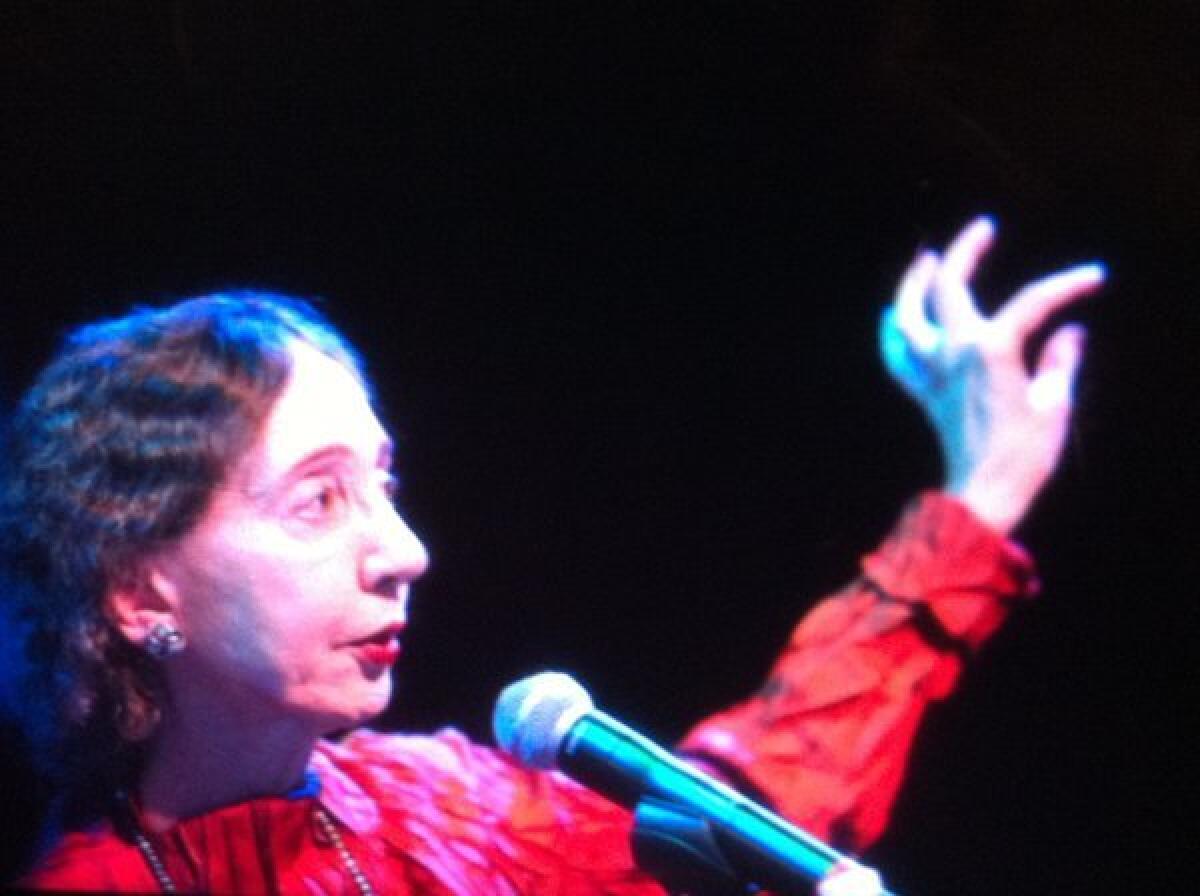Who are ‘The Accursed’? Joyce Carol Oates explains all

A couple of winters ago, Joyce Carol Oates pulled out a manuscript she first put down in 1984, had dusted up every six or seven years and couldn’t quite finish. “Writing is very intuitive and you can’t quite force it,” she said.
Not that she hasn’t been publishing in the meantime, but about three decades later we finally have “The Accursed,” Oates’ new book that delves into the supernatural and that some critics say shows the master novelist’s breadth in form and structure.
“It’s the author, not the characters, whom we are watching cross the high wire over the abyss,” Francine Prose wrote in the New York Review of Books.
FULL COVERAGE: FESTIVAL OF BOOKS
Interviewed Sunday at the Los Angeles Times Festival of Books by Patt Morrison, Oates spoke of how “The Accursed” emerged from her deep interest in American themes, including those that can be “melancholy” and “sometimes lurid.”
“I’m a formalist,” she said, adding that she is passionate about various forms of literature.
One of the most interesting parts of the interview was not Oates’ discussion of these forms; it was the indictment of power structures and racial dynamics she said the book represented and how she had to rewrite it over it the years to stay contemporary.
When she first started writing, for example, Barack Obama had not yet become president. The book is “very much about race, race hatred,” Oates said. “The curse is that indifference of the white race.”
She then drew a slight parallel between the inability of politicians from the 1920s to the 1960s to get anti-lynching laws through Congress to current circumstances. “Same way we can’t get a gun law through Congress today,” she said.
Twitter: @aribloomekatz | Facebook[email protected]
ALSO:
Author panel puts Hollywood in the spotlight
Duck Stamps, tacos, coffees and other single-subject obsessions
Times investigative reporters swap stories of watchdog journalism
More to Read
Sign up for our Book Club newsletter
Get the latest news, events and more from the Los Angeles Times Book Club, and help us get L.A. reading and talking.
You may occasionally receive promotional content from the Los Angeles Times.






